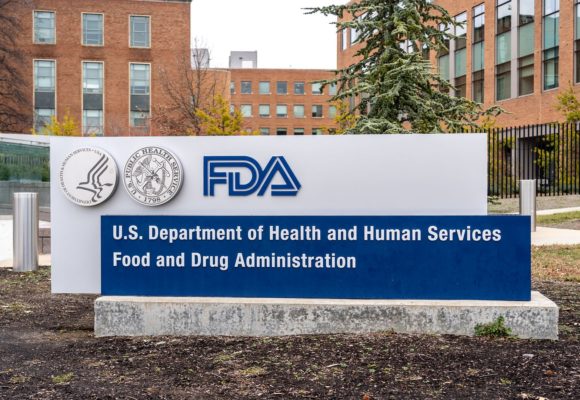Retifanlimab is under review in the U.S. as a treatment for advanced squamous cell carcinoma of the anal canal (SCAC), a rare cancer of the digestive system, in adults who are unable to receive, or whose disease progressed after, initial platinum-based chemotherapy. Incyte’s biologics licence application (BLA) to the U.S. Food and Drug Administration (FDA)…
About Cancer
Cancer, also called malignancy, is an abnormal growth of cells with the potential to invade or spread to surrounding tissues and structures found within the body. There are more than 100 types of cancer. A few examples include breast cancer, skin cancer, lung cancer, colon cancer, prostate cancer, and lymphoma. According to the American Cancer Society, 4 out of 10 people will be diagnosed with some form of cancer in their lifetime. Cancer prevalence has given rise to multiple medical specialties focused on symptom management and disease management. Current treatment options depending on the form of cancer include chemotherapy, radiation, blood or bone marrow transfusions, and/or surgery. Lifetime prognosis of cancer mortality is dependent on the type of cancer and is heavily conditional to early detection.
Conditions
Cancer News
Enhertu Approved in EU for Inoperable, Advanced Breast Cancer
The European Commission has conditionally approved Enhertu (trastuzumab deruxtecan) for adults in the EU with inoperable or metastatic HER2-positive breast cancer who have received two or more prior anti-HER2 based regimens. A conditional approval is granted when the benefits of a medication regulators say still requires additional data or testing are found to outweigh its potential…
First Patient Dosed With CYAD-211, a Potential CAR T-cell Therapy
The first patient has been dosed in Celyad Oncology’s Phase 1 clinical trial evaluating CYAD-211, an investigational donor-derived CAR T-cell therapy for treating relapsed or refractory multiple myeloma. The IMMUNICY-1 trial (NCT04613557) intends to recruit 12 patients who received two or more prior lines of treatment, including an immunomodulatory agent and a proteasome inhibitor. Enrollment…
FDA Agrees to Priority Review of Opdivo for Gastric, Esophageal Cancers
The U.S. Food and Drug Administration (FDA) has accepted for review — under priority status — two applications requesting the approval of Opdivo (nivolumab) for treating several types of gastric and esophageal cancers. Opdivo is an immune checkpoint inhibitor marketed by Bristol Myers Squibb that has been approved, both alone and in combination with other…
Daily Coffee Drinking Lowers Prostate Cancer Risk, Study Suggests
Drinking more coffee may significantly reduce a person’s risk of prostate cancer, with a nearly 1% lesser likelihood seen with each additional daily cup of coffee consumed, an analysis of published studies suggests. “Coffee consumption and risk of prostate cancer: a systematic review and meta-analysis” was published in BMJ Open. Coffee contains a number of biologically…
Zejula Now Available in UK as Maintenance Therapy for Advanced Ovarian Cancer
The National Institute of Health and Care Excellence (NICE) has recommended the use of Zejula (niraparib) as a maintenance therapy for people with advanced ovarian, fallopian tube, or primary peritoneal cancer. The medication will be available through the Cancer Drugs Fund (CDF), a funding program that seeks to increase access to promising cancer medicines in…
Imagio Imaging System for Breast Cancer Diagnosis Approved by FDA
Imagio, Seno Medical Instruments’ non-invasive and radiation-free breast imaging technology, has been approved for commercialization by the Center for Devices and Radiological Health, part of the U.S. Food and Drug Administration (FDA). The technology — known fully as the Imagio Breast Imaging System — was designed to help physicians better distinguish malignant, or cancerous breast tumors…
UV1 Triple Combo Maintenance Therapy Will Be Tested in Phase 2 Trial
Ultimovacs will test its experimental cancer vaccine, UV1, as part of a triple-combination therapy for women with relapsed ovarian cancer who have no mutations in their BRCA DNA repair genes. The Phase 2 DOVACC collaboration study will investigate UV1, in combination with AstraZeneca’s immune checkpoint inhibitor Imfinzi (durvalumab) and PARP inhibitor Lynparza (olaparib), as a…
Early Data Show TNB-383B to be Safe, Effective for Heavily Treated Myeloma
Teneobio‘s bispecific antibody TNB-383B was found to be well-tolerated and induced a high response rate among people with heavily treated multiple myeloma in an ongoing Phase 1 trial. Preliminary data from the trial (NCT03933735), which continues to recruit participants in the U.S., showed an 80% overall response rate at doses of 40 mg or more, with…
Tecentriq-Avastin Combo Leads to ‘Longest Survival’ in Liver Cancer
First-line therapy with a combination of Tecentriq (atezolizumab) and Avastin (bevacizumab) significantly prolongs the survival of people with inoperable hepatocellular carcinoma (HCC) — the most common form of liver cancer — according to updated data from an ongoing Phase 3 trial. The latest findings from the study, called IMbrave150 (NCT03434379), showed that the combination therapy…
Active Surveillance Safe for Black Men With Low-risk Diagnosis, Study Finds
Offering Black men active surveillance to manage low-risk prostate cancer is safe and does not increase the risk of disease spreading or death more than it does for white men, a study has found. However, Black men on active surveillance are more likely to progress and require definitive treatment, researchers said, and further investigation is needed…
Less-frequent Dosing of Imfinzi Approved in Europe for Advanced Lung Cancer
A less-frequent, fixed dose regimen of Imfinzi (durvalumab) has been approved in the European Union and U.K. to treat adults with locally advanced, inoperable non-small cell lung cancer (NSCLC), announced the therapy’s developer, AstraZeneca. This new dosing option, which will reduce the need for medical appointments, will be available to NSCLC patients weighing more than…













